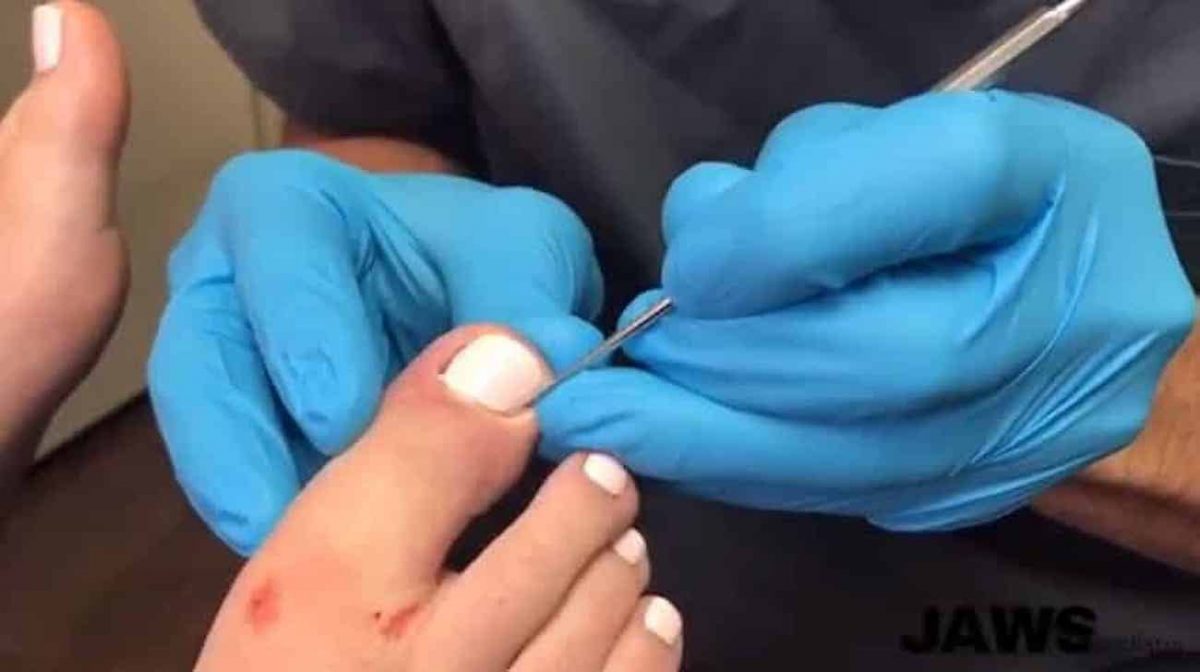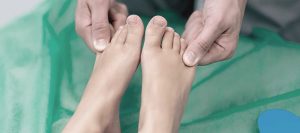
When we evaluate and treat foot and ankle problems at JAWS Podiatry, surgery is rarely, if ever, the first option.
We always look for non-surgical or minimally invasive treatment options whenever they can effectively treat and resolve an issue.
Sometimes, however, surgery may be the best or only available way to fix an issue. This includes how we address one of the most common foot problems we see – ingrown toenails.
While ingrown toenails usually heal on their own, many cases require surgical treatment by an experienced podiatrist to fully address the ailment.
The What and Why of Ingrown Toenails
An ingrown toenail grows into the skin below and surrounding the nail rather than growing over it. The big toe is particularly vulnerable to becoming ingrown.
You can develop an ingrown toenail for several reasons, including:
- Pressure from tight or poorly fitting shoes
- Trimming the toenail too short
- Fungal infections
- Injury or trauma, such as jamming or stubbing your toe.
If left untreated, a persistent or recurring ingrown toenail can cause serious health problems, including infections that can migrate to the bone and tissue adjacent to the nail.
Surgery For Embedded or Infected Nails
You may need surgery if the ingrown portion of the affected nail is firmly embedded in your skin or you have developed an infection. Signs of infection include swelling, pus, warmth, and redness in your toe.
In such cases, we may recommend removing the ingrown part of the nail. This minor surgical procedure may involve the use of a local anesthetic to numb your toe as we remove the nail.
If an ingrown toenail is a chronic, repeating problem for you rather than an isolated incident, we may need to fully remove the nail as well as the underlying using a chemical or fine laser.
After any ingrown toenail surgery, you will need to take care of the toe to prevent infection and encourage healing.
This may include cleaning the wound and soaking in Epsom salts and/or anti-microbial soap every day for one to two weeks, as well as applying an antibacterial cream and small bandage.
We also recommend wearing open-toe or loose-fitting shoes to keep pressure off the toe while it heals.
Call Jaws Podiatry Today to Get Help For Your Ingrown Toenail
If you are suffering from an ingrown toenail or are having any other problems with your feet or ankles, pease contact us or call (954) 922-7333 to schedule an in-person or virtual consultation today.
- The Life-Changing Power of Cosmetic Foot Surgery - February 27, 2023
- What Are The Most Common Pediatric Foot Conditions? - October 5, 2020
- 4 Important Things To Know Before Having Foot Surgery - September 21, 2020



